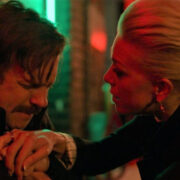MUDBOUND: The Bonds That Bind & Break
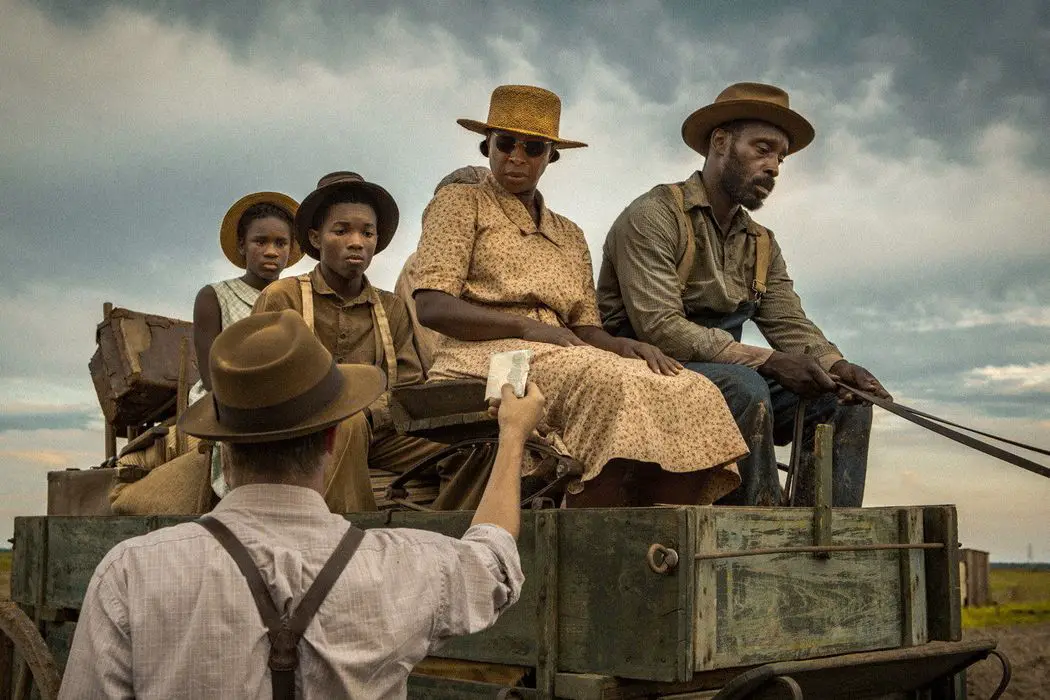
Tomas is a chronic cineaste who studied English literature in…
There is a stillness to Dee Rees’ Mudbound that is immediately striking. Rather than shoot her performers in constant motion, Rees instead settles on shots of them in repose: in chairs, on porch steps, in or on the edge of beds. In the Mississippi Delta where the film is set, too much movement becomes treacherous. The rains fall. The ground is churned up to a glutinous black abyss, dirtying the flesh and stranding lives.
Those who do venture out into the muck do so out of necessity, but there is also a modicum of reliance in the mix. Of tacit alliance between families that share more in common than meets the eye.
A Tale of Two Households
These families are of different races. The McAllans are white folks, led by the ambitious Henry (Jason Clarke). He moves his wife Laura (Carey Mulligan), racist father Pappy (Jonathan Banks) and daughters out of the bourgeois luxuries of Memphis to a ramshackle farm—the downgrade the result of a dirty swindle. They make do, though barely.
Laura is especially hit hard by the move, forced to give up all creature comforts and privacy without much in the way to occupy herself. The bleakness of her situation is highlighted by how passionately she demands that her piano be kept in the living room, forcing Pappy to sleep in the lean-to. One is reminded of Holly Hunter in The Piano in this exchange.
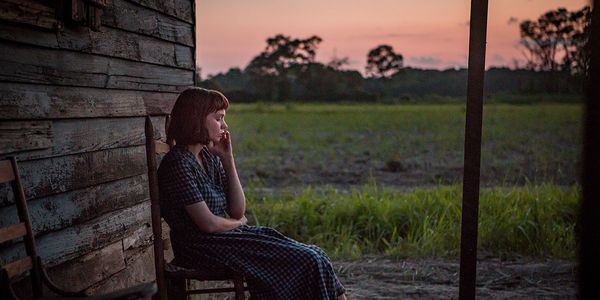
The marriage between Laura and Henry is one of mutual convenience and some affection, though not passion. Laura didn’t want to be an old maid; Henry needed a wife. They came together without fanfare, despite the fact that Henry’s younger brother Jamie (Garrett Hedlund) was more attractive and charismatic. However, the seeds of temptation, while planted, come to nothing: when the US enters World War II, Jamie departs to become a flight captain and wages battle in the air.
Next door to the McAllans are the Jacksons, black tenant farmers who dream of someday owning the land they toil over. Patriarch Hap (Rob Morgan) knows his place in his encounters with Henry, though privately he is stubborn and ready for greater independence. His wife, Florence (Mary J. Blige), is a midwife and the family caretaker, gently keeping watch over her flock with a mix of constant worry and determination. Like their white neighbors, they too send a child off to war: their eldest son Ronsel (Jason Mitchell), who later becomes an army sergeant and indulges his sexual appetites with a white German lover.
Both Alike in Dignity
The centerpiece of Mudbound is the relationship between Jamie and Ronsel when they return to Mississippi after the war. Jamie is psychologically scarred by the conflict’s abject senselessness, including the gut-wrenching moment he lost his co-pilot in a German ambush. He is alive and broken, left to swig alcohol and scream out his pains in the night.
Ronsel is marginally less battered by the experience, but the liberality of Europe has made him contemptuous of the racist mores that still linger in his hometown. He believes it is his right, for instance, to leave the convenience store by the front door—he is a veteran and a hero who deserves respect. Supremacists like Pappy think differently. No matter his contributions, the color of his skin still defines his being.
That is why Jamie’s acceptance of Ronsel is so beautiful. It is not that their friendship transcends racial barriers—for instance, Ronsel is rightly suspicious at first, and doesn’t believe Jamie’s kindness is genuine until Jamie insists he taste some of his whiskey. The ritual of hospitality breaks the tension, but Ronsel’s interplay with Jamie is still always clouded with specks of doubt, as though it were too good to be true.
Yet race is not the be-all and end-all. In Ronsel, Jamie sees a man who fought on the same side and experienced the same terrors. They chuckle over Ronsel’s attraction to a white girl. Ronsel listens attentively to Jamie’s broken recollections. They talk and bond. And within these moments of stillness is an empathy that refuses to bend to the times. One that signals the start of something new, like the peace that surfaces after the violence of rain.
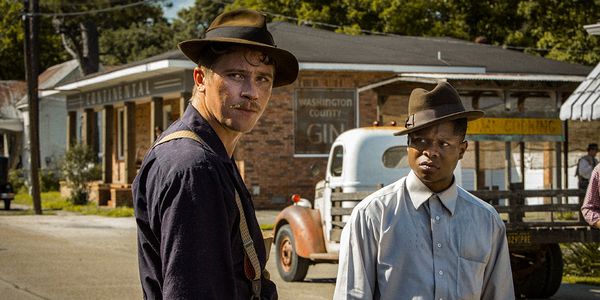
For a good chunk of Mudbound, however, Jamie and Ronsel are absent. Their relationship only blooms in the last half of the film. In the interim, we see the dynamic between the McAllans and Jacksons play out with hushed tentativeness. Pappy is hateful; Henry and Hap are civil, but nothing more. Laura and Florence, however, see an alliance between the families as beneficial.
When Florence nurses Laura’s girls back to health after a bout of whooping cough, her tender presence implicitly becomes a source of strength for Laura. Florence works and cleans; she waits for her son to come home. Above all, she radiates the intensity to live and do better for those she loves, taking on a servile position only as a means to achieve the Jackson’s ideal.
If the film does not center on them, one can still sense that Laura’s continued resilience is due in part to Florence’s example. An unspoken solidarity amidst despairing circumstances, couched in poetic voiceovers that bring us closer to these interior lives. With no one else to talk to, they instead talk to us.
Civil Blood Makes Civil Hands Unclean
There is surprisingly little violence in Mudbound, though when it does come, it wallops you hard. This is an area that Dee Rees handles superbly. Interlaced with the stillness and solitude is that constant, underlying threat of rupture. It is presaged by Hap’s fall from a ladder, which incapacitates him to the point where he is forced to sharecrop for Henry to make ends meet.
Then we see Jamie and Ronsel’s comrades become casualties of war, bullets literally ripping out brain matter. These are moments when violence hits out of nowhere, without warning or prevention. They emphasize how delicate the balance of peace is, and how quickly it can tip over to bloody calamity.
The film’s ending is in the same mold. Apart from Hap’s injury, and an occasional epithet from Pappy, the Jacksons suffer little. It is almost eerie how peaceably they are able to reside, and for a while, it seems as if Rees is advancing a pseudo-utopian version of reality. Not so. Her still approach merely lulls us into a false sense of security, because there is horrifying rupture and equally horrifying moments of suffering in store. Unsurprisingly, this is the consequence of Jamie and Rondel’s friendship. What is surprising is how utterly brutal and devastating the end result becomes.
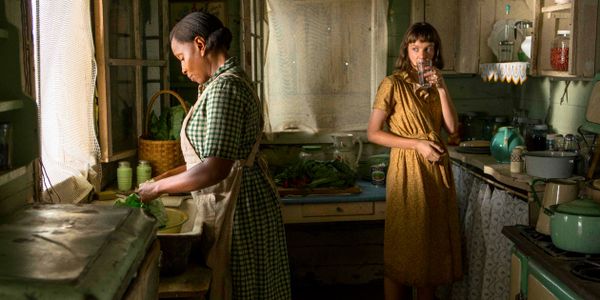
Without spoiling anything, I will say this: Mudbound ends the way it needs to, even though it’s in a way we do not want. After 90 minutes of relative serenity, Rees intensifies the mise-en-scène so that it positively glowers. The lighting is marked by harsh contrasts; the camera swoops from different heights and perspectives without stopping. The climax is comprised of ruby shards, glinting madly. It is completely effective in making this inhumanity a nauseating experience. Kindness is unrewarded, and like much of history, the blemishes of sin are so hideous that even the strong cannot endure for long.
Rees does extend a note of hope, though, moving in a different direction from Hillary Jordan’s novel and offering a chance for her characters—and us—to heal. At first, it feels like a jarring resolution to what came immediately before, a tidy and somewhat melodramatic conclusion that threatens to undermine the gravity of the situation. I, however, think it is earned. For a film that is so infused with stillness, here we have the first sign of movement. Of progress. Of the rainwater breaking on the saturated land, ready for the greenery.
It is, in other words, a beautiful conclusion to a uniformly beautiful film.
Mudbound: Conclusion
As much as I wonder how a miniseries format might have further fleshed out the characters, Dee Rees still manages to imbue her film with the epic dignity a familial and cultural saga like this deserves. The ensemble work here is top-notch, with not a single face out of place, and the lyrical beats that Rees hits lends it both class and stature. Truly, Mudbound is a majestic example of filmmaking at its most assured, as all the finer details can be appreciated on their own terms.
Have you read the novel on which Mudbound is based on? If so, do you agree with the creative choices made to bring it to life? Let us know in the comments below!
Mudbound is available to stream worldwide on Netflix.
https://www.youtube.com/watch?v=xucHiOAa8RsDoes content like this matter to you?
Become a Member and support film journalism. Unlock access to all of Film Inquiry`s great articles. Join a community of like-minded readers who are passionate about cinema - get access to our private members Network, give back to independent filmmakers, and more.
Tomas is a chronic cineaste who studied English literature in university (in both the undergraduate and graduate levels), and hopes to pursue a career in writing. His passion for film began in earnest at the beginning of the 2010s, and since then he's been reveling at the vast horizons of the cinematic landscape like a kid at the proverbial candy store.






